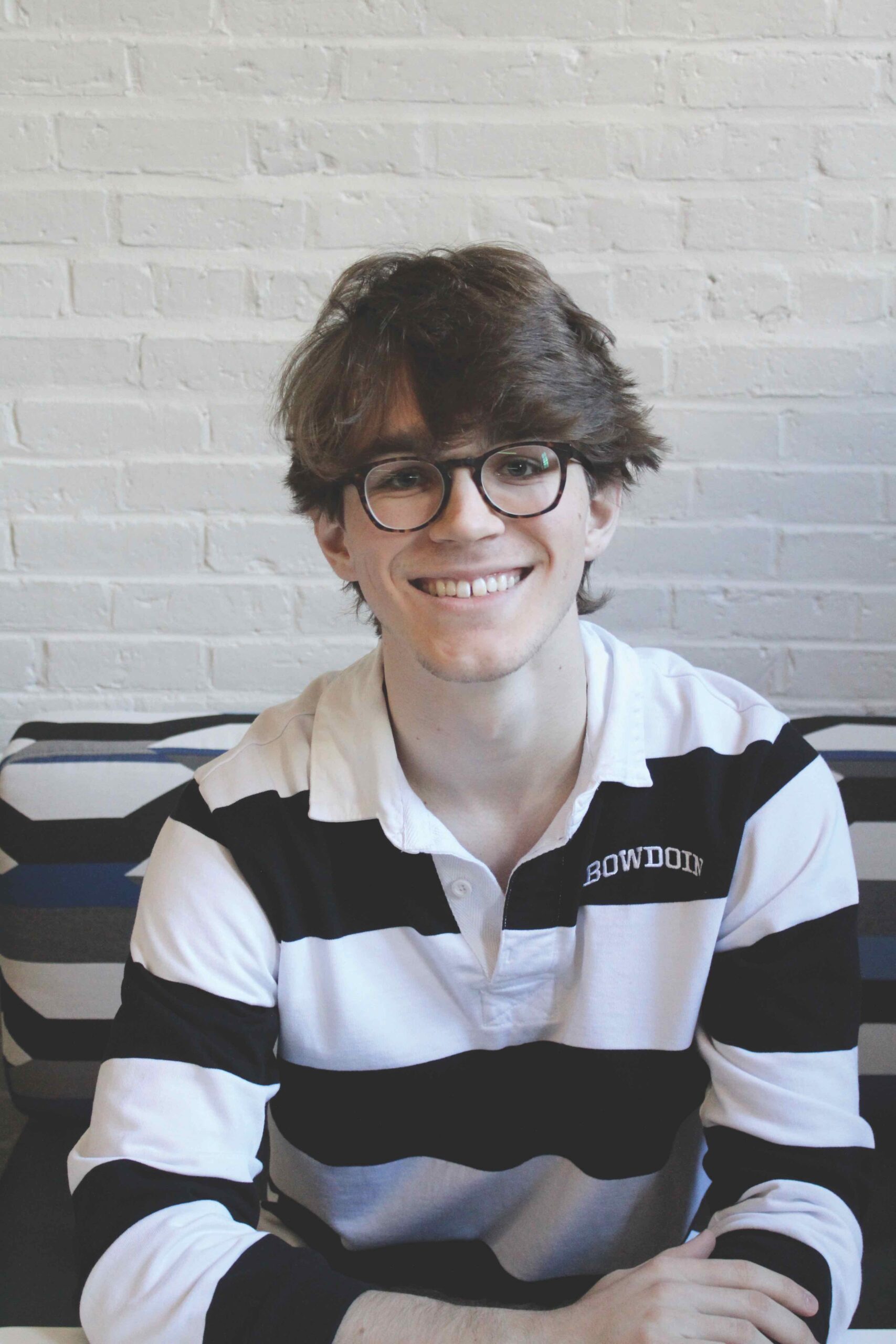With chips in hand, students push limits of technology
February 25, 2022
 Mary Henthorn
Mary HenthornFor Mason Daugherty ’25 and Philip Spyrou ’25, rummaging for a OneCard while in line for Thorne is a distant memory. Instead of grabbing their wallet, phone or lanyard, these students have everything they need right in the palm of their hand—literally.
Daugherty came to Bowdoin with two subdermal microchips implanted within his hand. The RFID-based chips are amenable to most touchless card readers, and they can be programmed to operate as a OneCard after the user uploads identifying credentials from the physical card.
“[It is] pretty safe, actually,” Daugherty said. “[The device] came sterile, with antiseptic wipes. And I had a friend inject me. And the rest [is] history, I guess.”
Commonly considered a form of “biohacking,” or enhancing one’s body with external technology, the chip is designed for added convenience in navigating daily life by integrating reader-enabled devices with the body. Daugherty got the idea from a VICE Media video featuring biohackers, while Spyrou came across people with chip implants during a high school internship at a biology laboratory.
“[The definition] is pretty expansive. Even altering your gut biology can be considered biohacking,” Daugherty explained. “I call [biohacking] any action that you can take to enhance or bring out functionality from your body that you might not have.”
Spyrou’s chip and one of Daugherty’s chips are used for OneCard access, while Daugherty’s second chip on his other hand is linked to his Instagram profile. The function of the chips can be changed at any time.
The chips are lodged at the edge of the palm between their thumb and index finger, a location both Daughery and Spyrou thought was ideal for accessibility and intuitiveness.
“There is really no better spot. There are other spots in the body you could implant [at], but they just wouldn’t be nearly as convenient,” Daugherty said. “It felt intuitive, based on what I would be using it for.”
Considering the potential risks of implanting the chip, both students did extensive research beforehand to ensure safety. At the same time, however, there had to be great trust in the fact that the commercial microchip being implanted was genuine.
“I was worried that I would get it inside and then it would be a dud,” Daugherty said. “Then I’d be stuck with it. So there’s a lot of trust you have to give to the manufacturer.”
Daugherty and Spyrou said some find it jarring to witness someone unlock a door or swipe into a dining hall with the wave of a hand.
“I mean, it’s not for the faint of heart. Some people see it and they’re freaked out by it,” Daugherty said. “It’s like getting a tattoo. It’s on you all the time. You forget about it.”
Despite the dramatic reactions having a microchip in one’s hand elicits, for Spyrou, it isn’t such a big deal.
“It’s useful and it’s kind of nice, and I really appreciate the technology … [but] I don’t necessarily think that this makes such a large impact. At the end of the day, I could just carry my OneCard everywhere,” Spyrou said.
Daugherty acknowledged this possibility of the novelty rubbing off, noting that mainstream tech companies like Apple already integrate similar technology for services like Apple Pay. Still, he expects the conversation around microchipping and biohacking to persist for the foreseeable future.
“I don’t think it’s going away. It’s a growing community. Each year, it gets a little larger. People are finding more and more innovative ways to use these. I think it’ll grow proportionately,” Daugherty said. “There’s already a movement against things like this. I wouldn’t be surprised if a movement of naturalists came out and saw this as not beneficial.”
“I think that it’s a step towards this better integration with technology in our lives. I’m kind of on the fence because there is also this fear of over technologically realizing our lives and like losing something,” Spyrou said. “I think it has a lot of security uses—it’s probably the most secure thing. You can’t lose something that’s in your body.”
Comments
Before submitting a comment, please review our comment policy. Some key points from the policy:
- No hate speech, profanity, disrespectful or threatening comments.
- No personal attacks on reporters.
- Comments must be under 200 words.
- You are strongly encouraged to use a real name or identifier ("Class of '92").
- Any comments made with an email address that does not belong to you will get removed.

“RFID is commonly used in pets”
– Mason, the Bowdoin Review, c. 2021
(https://bowdoinreview.com/2021/11/17/cyborgs-walk-among-us/)